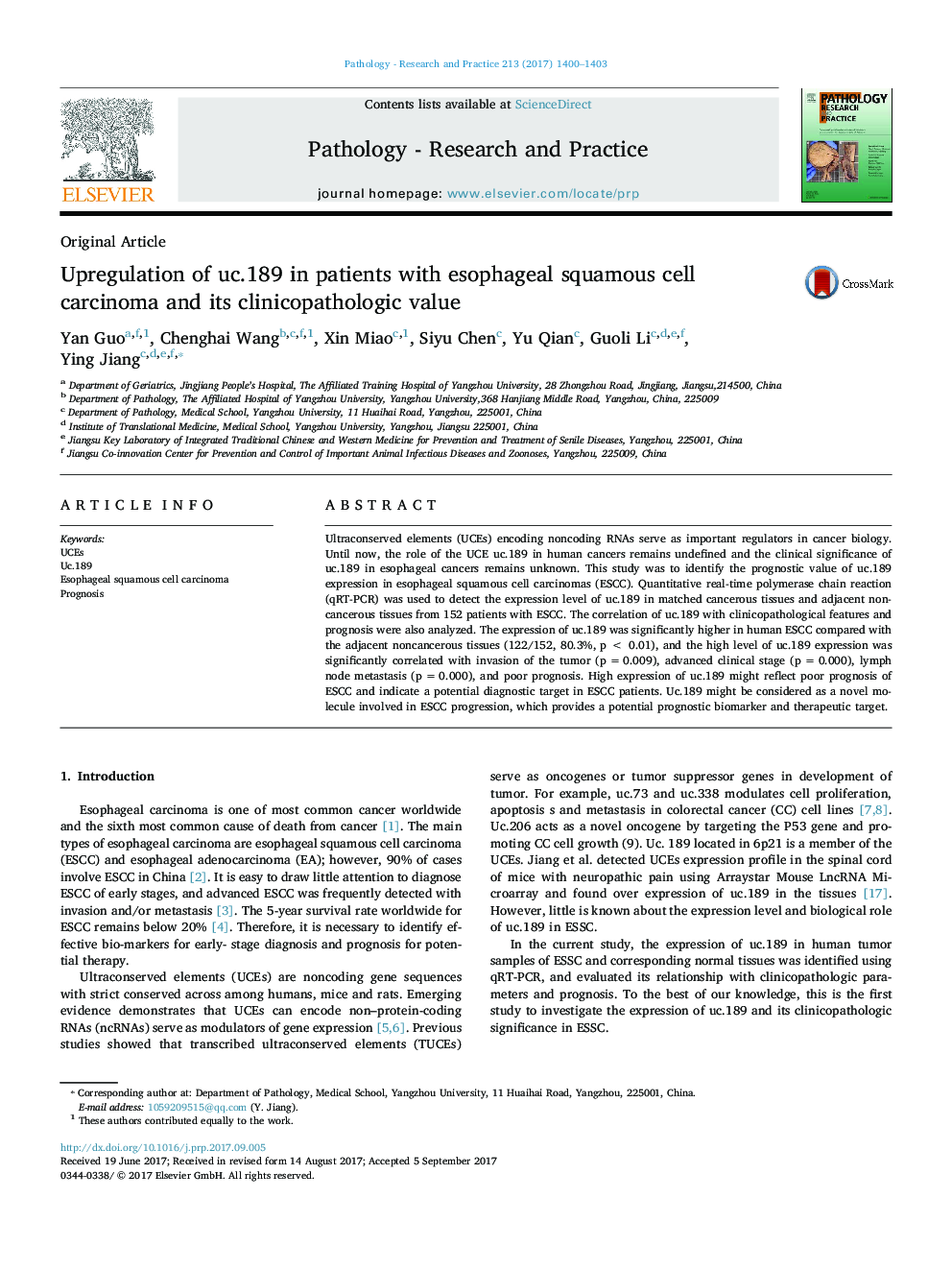| Article ID | Journal | Published Year | Pages | File Type |
|---|---|---|---|---|
| 5529136 | Pathology - Research and Practice | 2017 | 4 Pages |
Ultraconserved elements (UCEs) encoding noncoding RNAs serve as important regulators in cancer biology. Until now, the role of the UCE uc.189 in human cancers remains undefined and the clinical significance of uc.189 in esophageal cancers remains unknown. This study was to identify the prognostic value of uc.189 expression in esophageal squamous cell carcinomas (ESCC). Quantitative real-time polymerase chain reaction (qRT-PCR) was used to detect the expression level of uc.189 in matched cancerous tissues and adjacent noncancerous tissues from 152 patients with ESCC. The correlation of uc.189 with clinicopathological features and prognosis were also analyzed. The expression of uc.189 was significantly higher in human ESCC compared with the adjacent noncancerous tissues (122/152, 80.3%, p < 0.01), and the high level of uc.189 expression was significantly correlated with invasion of the tumor (p = 0.009), advanced clinical stage (p = 0.000), lymph node metastasis (p = 0.000), and poor prognosis. High expression of uc.189 might reflect poor prognosis of ESCC and indicate a potential diagnostic target in ESCC patients. Uc.189 might be considered as a novel molecule involved in ESCC progression, which provides a potential prognostic biomarker and therapeutic target.
